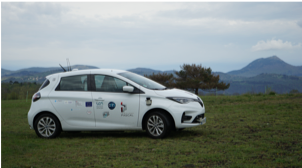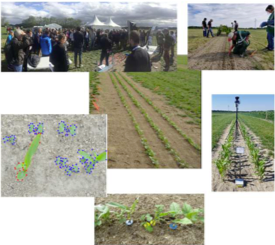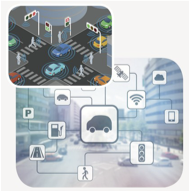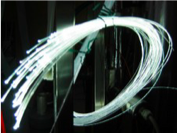International Research Centre on Innovative Transportation and Production Systems - IRC ITPS

- Scientific challenges
-
The International Research Centre for Innovative Systems for Transport and Production aims to develop responses to the following scientific challenges:
- the development of fully autonomous mobile robots, whether autonomous transport vehicles or industrial (AGV)
- the development of mobile, flexible and ergonomic cobots
- strategic, tactical and operational planning of production and transport systems
- the development of new energy vectors that meet environmental challenges
- operational modelling of the acceptability and acceptance of new technologies in the transport and production sectors.
The main scientific themes at the heart of CIR ITPS are:
- navigation of mobile robots
- robot design and control
- assistance in steering complex systems and decision-making
- sustainable materials
- energy vectors for sustainable mobility
- attention, perception, understanding, acceptability and acceptance of new technologies
- market research for new technologies.
- Missions
-
- Unify the site's research activities around innovative transportation and production systems
- Pursue an international strategy that enhances the site's visibility
- Contribute to the territorial deployment of scientific and development activities
- Key Figures
-
- 4 Institutions
-
- Université Clermont Auvergne (UCA)
- Centre National de Recherche Scientifique (CNRS)
- Institut National de Recherche pour l'Agriculture, l'Alimentation et l'Environnement (INRAE)
- Cerema
- 9 Research Units
- Almost 200 statutory researchers are involved.
- 6 Shared Laboratories
- Structuration
-
To address the scientific challenges identified, the IRC ITPS is structured into different themes: an upstream theme, five application themes, and a downstream theme. The objectives of these themes are described below:
Structuration
- Resourcing
- Manager : Sandrine THERIAS (ICCF)
The aim of this theme is to support the emergence of exploratory fundamental research projects that could eventually find an application in one of the five application themes: Intelligent Automated Transport, the Factory of the Future, Agrotechnologies, Innovative Services or the Energy of the Future. - Smart Actions for Automated Transport Systems
-
Manager : Paul CHECCHIN (Institut Pascal)
The aim of this theme is to increase the intelligence, functionality and automation of robotic systems (mobile robots and collaborative robots) by taking into account, both for their adaptability and their ergonomics, the almost inescapable interactions they have with humans. - Factory of the Future
-
Manager : Marie IZAUTE (LAPSCO)
The aim of this theme is to develop new systems and/or new organisations that will make it possible to eliminate some of the arduous or stress-inducing tasks, improve the attractiveness of the job and promote the sustainable development of production systems, thereby encouraging the emergence of new working models to contribute to industrial efficiency. - Agrotechnologies
-
Manager : Nicolas TRICOT (TSCF)
This theme aims to develop agricultural robotics to achieve the agri-ecological transition that is essential to reducing environmental impact while guaranteeing agricultural production that reconciles quality and quantity, as well as making the agricultural professions attractive to new generations. - Innovative Services
-
Manager : Mourad BAIOU (LIMOS)
This theme aims to enable the efficient integration of new generations of vehicles/robots within operational mobility systems by focusing on the design of models and decision-making tools. - Energy of the Future
-
Manager : Fabrice GROS (Institut Pascal)
This theme aims to develop clean technologies and integrated and intensified processes for producing energy carriers, by deploying an effective synergy between fundamental approaches and applications. - Prototyping
-
Manager : Arnaud BOCQUILLON (Pôle CIMES)
The aim of this theme is to enable the finalisation of demonstrators to showcase our research activities.
STEERING COMMITTEE
Members :
- P. Checchin
- M. Baiou
- F. Gros
- N. Tricot
- M. Izaute
- S. Therias
- A. Bocquillon
- F. Coutarel
- P. Mathieu
- F. Bernardin
- A. Munch
- C-Y. Jacquin
- D. Hill
- G. Chadeyron
- P. Schiano (permanent guest)
- B. Fargès (permanent guest)






